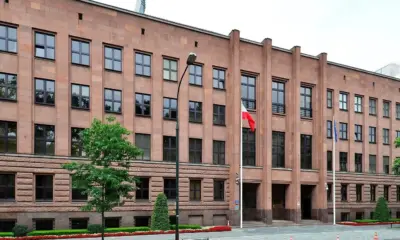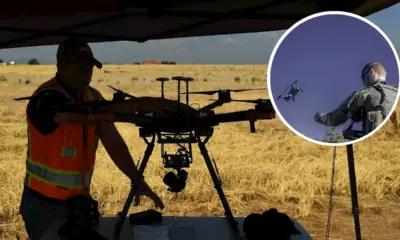Education
Poland Triggers NATO Response Amid Ongoing Conflict Tensions

Poland has activated Article 4 of the NATO treaty, prompting a collective response from member states in light of escalating tensions linked to the ongoing conflict in Ukraine. This significant move, announced on March 15, 2024, comes as Poland seeks assurances of support amid perceived threats from Russia’s military activities near its borders.
The activation of Article 4 allows any NATO member to call for consultations when its territorial integrity, political independence, or security is threatened. This decision highlights Poland’s growing concerns regarding the regional stability of Eastern Europe, particularly in light of Russia’s military maneuvers and its involvement in the Ukrainian conflict.
Context of the Conflict
Poland’s call for NATO’s assistance underscores a broader geopolitical climate that has become increasingly volatile since the onset of hostilities in Ukraine. The Polish government, led by Prime Minister Mateusz Morawiecki, has expressed that the situation necessitates immediate discussion among NATO allies to reinforce collective security measures.
According to a statement from the Polish Ministry of Defense, “The current security environment in our region requires unity and swift action. We cannot afford to be complacent.” This sentiment reflects a growing urgency within NATO to reassess its defense posture in Eastern Europe.
NATO’s Collective Response
In response to Poland’s request, NATO Secretary-General Jens Stoltenberg confirmed that the alliance will convene for emergency talks to address this pressing matter. Stoltenberg stated, “NATO stands united. We will ensure that our eastern flank is secure and that our member states are protected.”
This response comes at a crucial time, as NATO has already increased its military presence in Eastern Europe following Russia’s annexation of Crimea in 2014. The alliance’s commitment to collective defense is further emphasized by its ongoing military exercises in the region, aimed at deterring potential aggression.
The implications of Poland’s Article 4 activation extend beyond military considerations. It also signals a potential shift in the political landscape in Europe, with heightened calls for unity among NATO members. The situation has drawn attention from various international leaders, who are closely monitoring developments.
As discussions unfold, the focus will likely be on enhancing military readiness and exploring additional support mechanisms for Poland and neighboring countries. The potential ramifications of this decision could shape the future of NATO’s strategic framework and its ability to respond effectively to emerging threats.
In conclusion, Poland’s activation of Article 4 serves as a critical reminder of the fragile security dynamics in Eastern Europe. With the specter of conflict looming, NATO’s collective response will be pivotal in ensuring stability and deterring further aggression in the region.
-

 Science1 month ago
Science1 month agoNostradamus’ 2026 Predictions: Star Death and Dark Events Loom
-

 Technology2 months ago
Technology2 months agoOpenAI to Implement Age Verification for ChatGPT by December 2025
-

 Technology7 months ago
Technology7 months agoDiscover the Top 10 Calorie Counting Apps of 2025
-

 Health5 months ago
Health5 months agoBella Hadid Shares Health Update After Treatment for Lyme Disease
-

 Health5 months ago
Health5 months agoAnalysts Project Stronger Growth for Apple’s iPhone 17 Lineup
-

 Technology5 months ago
Technology5 months agoElectric Moto Influencer Surronster Arrested in Tijuana
-

 Science2 months ago
Science2 months agoBreakthroughs and Challenges Await Science in 2026
-

 Education5 months ago
Education5 months agoHarvard Secures Court Victory Over Federal Funding Cuts
-

 Health5 months ago
Health5 months agoErin Bates Shares Recovery Update Following Sepsis Complications
-

 Science4 months ago
Science4 months agoStarship V3 Set for 2026 Launch After Successful Final Test of Version 2
-

 Technology7 months ago
Technology7 months agoMeta Initiates $60B AI Data Center Expansion, Starting in Ohio
-

 Technology6 months ago
Technology6 months agoDiscover How to Reverse Image Search Using ChatGPT Effortlessly



















